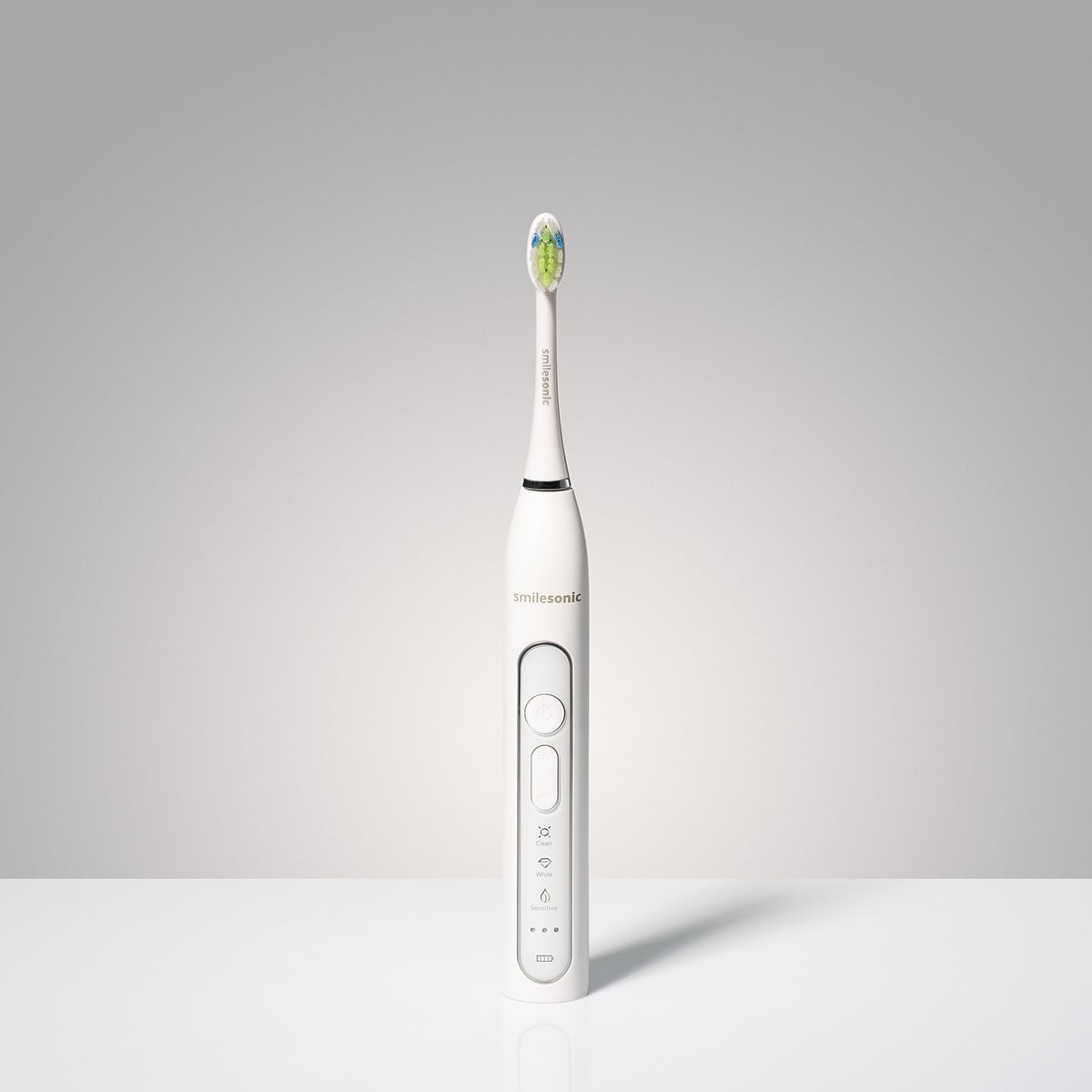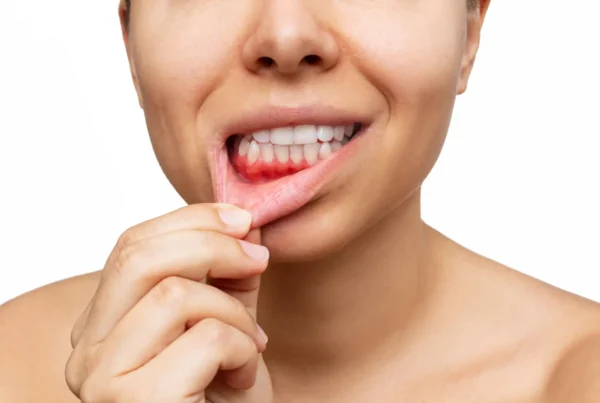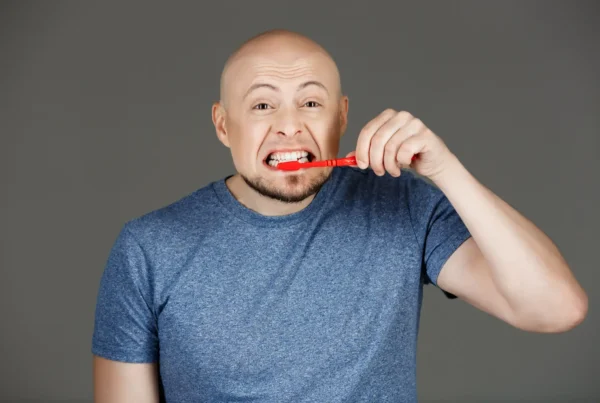Which toothpaste works for tartar – can any toothpaste actually dissolve it?
Tartar is a common dental issue affecting many people. It’s a hardened form of plaque that builds up on tooth surfaces, especially in areas that are harder to reach during daily oral care. In this article, we’ll take a closer look at what plaque and tartar are, how they form, and which methods of prevention and treatment can help manage them. We’ll also explore whether there are any toothpastes that can truly fight tartar.
Tartar vs. plaque – what’s the difference?
Dental plaque is a soft, colorless or yellowish film made up of bacteria, food particles, and saliva that accumulates on your teeth. It forms naturally just a few hours after brushing. Plaque is the main cause of gum disease, gingivitis, and periodontitis. Brushing and flossing daily helps remove most plaque before it hardens.
Tartar, also known as calculus, forms when plaque isn’t removed and begins to mineralize due to the minerals present in saliva. This process takes days or weeks depending on oral hygiene and individual tendencies. Once hardened, tartar becomes rough and difficult to remove with a regular toothbrush. It encourages more plaque accumulation and can lead to gum recession, decay, infection, sensitivity, and eventually, tooth loss.
Can good daily oral hygiene prevent tartar buildup?
Yes, but it must be consistent. Here’s how you can reduce tartar risk:
- Brush your teeth at least twice a day for two minutes each time using a soft or medium-bristle toothbrush.
- Floss daily to clean between teeth and remove plaque in tight areas.
- Use mouthwash with antibacterial ingredients to reduce bacteria and support enamel remineralization.
- Follow a balanced diet rich in calcium and fiber, and avoid excess sugars and acidic foods.
- Visit the dentist at least twice a year for check-ups and professional cleanings.
- Choose anti-tartar toothpaste with pyrophosphates or citrates, which help prevent mineral buildup.
- Avoid smoking, as it accelerates plaque and tartar formation and raises the risk of gum disease and oral cancer.
Consistency and attention to detail are essential in reducing tartar and maintaining a clean, healthy smile.
Can you remove tartar at home?
The short answer is no. Despite popular internet advice, no home remedy or toothpaste can dissolve tartar. Tartar is a calcified structure that cannot be broken down with household products. Methods like vinegar, baking soda, or lemon may actually harm enamel and irritate gums without removing tartar.
Can toothpaste actually remove tartar?
Unfortunately, no toothpaste currently on the market can fully remove hardened tartar. Toothpastes can help prevent plaque from mineralizing into tartar, but once it hardens, it must be removed professionally.
That said, certain ingredients in toothpaste can slow down tartar formation. These include:
- Pyrophosphates and citrates – reduce mineral buildup on enamel.
- Activated charcoal – helps remove surface stains and adsorb impurities.
- Enzymatic and whitening formulas – aid in stain removal and maintaining enamel clarity.
For existing tartar, professional dental cleaning using ultrasonic scalers or manual tools is required. Still, using the right products can help reduce buildup and improve the appearance of your teeth over time.
What are the most effective professional tartar removal methods?
- Ultrasonic scaling – uses high-frequency vibrations to break tartar into smaller pieces, which are then flushed away. It’s fast, painless, and minimally invasive.
- Manual scaling – uses hand instruments to remove stubborn tartar deposits. It’s precise and effective, especially in tight areas.
- Air polishing (sandblasting) – cleans residual plaque and polishes enamel using a jet of fine powder and water under pressure.
- Tooth polishing – a finishing step that smooths enamel and reduces future plaque and tartar buildup.
Can natural or whitening toothpaste help?
Yes, but in a preventive way. Toothpastes containing activated charcoal, hydroxyapatite, or chlorhexidine can help clean and protect enamel. While they won’t dissolve tartar, they can maintain a bright appearance and fight plaque buildup between dental visits.
Among the recommended products:
- Smilesonic Carbon White – with activated charcoal for stain removal and a whitening boost.
- Smilesonic Premium White – offers intensive whitening and plaque prevention.
- Smilesonic Sensitive – contains hydroxyapatite for enamel repair, ideal for sensitive teeth.
These formulas won’t eliminate tartar but support overall oral hygiene when used consistently.
Final thoughts – can toothpaste fight tartar?
While no toothpaste can remove hardened tartar, there are products that help slow down its formation. Consistent brushing, flossing, and professional cleanings remain the best approach to tartar control.
If you want clean, healthy teeth, focus on daily care, regular dental visits, and choosing the right toothpaste. Natural and whitening options with enamel-safe ingredients can be excellent additions to your oral hygiene routine.
Ready for a cleaner smile? Explore the Smilesonic range for effective anti-tartar support, and remember—only your dentist can fully remove tartar.





